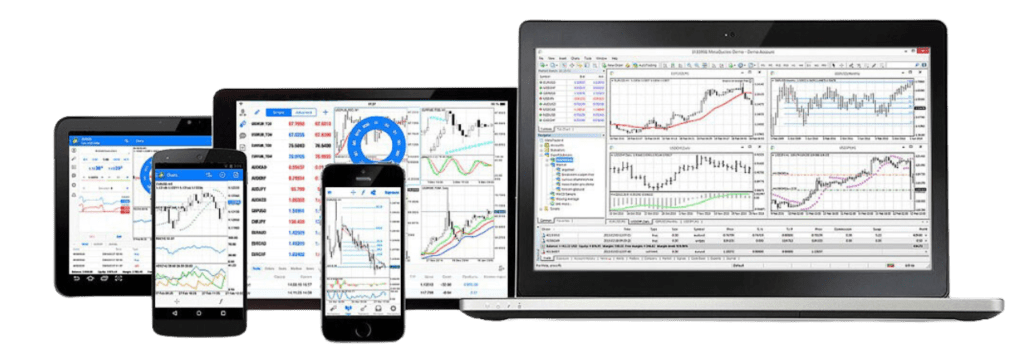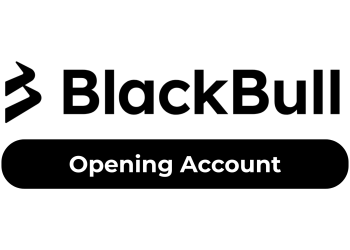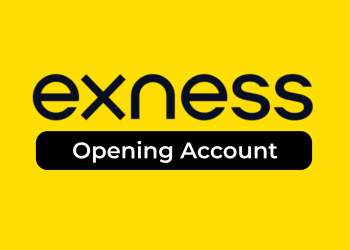In the world of forex trading, understanding the role of forex brokers is essential for your success. Forex brokers act as intermediaries between traders and the foreign exchange market, providing access to trading platforms, market analysis, and various services.
This guide will help you navigate the complexities of choosing the right forex broker, understanding fees and commissions, and selecting the most suitable account type for your trading needs.
Key Takeaways
- Regulation and licensing are crucial factors to consider when choosing a forex broker.
- The trading platform offered by a forex broker can significantly impact your trading experience.
- Good customer support is essential for resolving issues and getting assistance promptly.
- Spread costs, commission structures, and deposit/withdrawal fees are important considerations for managing trading expenses.
- Different account types such as standard, mini, and VIP accounts offer varying features and benefits for traders.
Choosing the Right Forex Broker
In this section we will go over the things that you need to consider when choosing the right broker for you.
Regulation and Licensing
When venturing into the world of forex trading, the importance of partnering with a regulated and licensed broker cannot be overstated.
Regulatory oversight ensures that brokers adhere to strict financial standards and ethical trading practices, providing traders with a level of protection and peace of mind.
Regulatory bodies vary by region, and each has its own set of rules and standards that brokers must comply with. Here’s a brief overview of some of the major regulatory authorities:
- United States: Commodity Futures Trading Commission (CFTC) and National Futures Association (NFA)
- United Kingdom: Financial Conduct Authority (FCA)
- Europe: Cyprus Securities and Exchange Commission (CySEC) and other MiFID-compliant regulators
- Australia: Australian Securities and Investments Commission (ASIC)
It is crucial for traders to verify the regulatory status of a forex broker before opening an account. A broker’s regulatory information should be transparent and easily accessible on their website.
Choosing a non-regulated broker exposes traders to unnecessary risks, including the potential for fraud and manipulation. Therefore never ever trade with an unregulated broker.
Always prioritize safety and due diligence in your selection process to ensure a secure trading environment.
Trading Platforms
The trading platform is the investor’s gateway to the markets, and its choice can significantly impact the trading experience.
Ease of use, stability, and technical tools are critical factors to consider when evaluating a platform. Most brokers offer a proprietary platform or support popular third-party platforms like MetaTrader 4 and 5.
- Proprietary platforms may offer unique features tailored to the broker’s services.
- Third-party platforms are widely used and may provide a sense of familiarity and community support.
It’s essential to test the platform through a demo account to ensure it meets your trading needs and preferences.
Additionally, mobile trading has become indispensable for many traders. A robust mobile platform should offer full functionality to manage trades on the go. Remember, the right platform can enhance your trading performance and overall experience.
Recommended Forex Brokers & Platforms
[ninja_tables id=”6695″]
Customer Support
When trading in the volatile Forex market, having access to reliable customer support can be the difference between a resolved issue and a costly mistake.
Prompt and knowledgeable support is crucial, especially during market hours. Forex brokers offer various support channels, including live chat, email, and phone support, each with its own response time and availability.
- Live Chat: Often available 24/5 or 24/7, providing instant assistance.
- Email: Suitable for less urgent issues, with responses typically within 24 hours.
- Phone Support: Direct contact for urgent and complex issues, but may involve wait times.
It’s important to consider the language support offered by the broker, as well as the quality of the service provided. A broker with multi-lingual support can be invaluable for traders not fluent in the broker’s primary language.
Before committing to a broker, test their customer service response time and quality. This can be a telling sign of the broker’s overall reliability and commitment to their clients.
Forex Broker Fees and Commissions
Spread Costs
In the realm of Forex trading, spread costs play a pivotal role in a trader’s expenses. The spread is essentially the difference between the bid and the ask price of a currency pair.
A narrower spread signifies a lower cost for the trader, while a wider spread indicates a higher cost. Forex brokers may offer variable or fixed spreads, and these can fluctuate based on market conditions.
It’s crucial for traders to understand that spread costs can impact profitability, especially for those who trade frequently or with large volumes.
Here’s a simplified example of how spreads can vary among different currency pairs:
| Currency Pair | Typical Spread (pips) |
|---|---|
| EUR/USD | 0.1 – 1.5 |
| USD/JPY | 0.2 – 2.0 |
| GBP/USD | 0.5 – 2.5 |
Traders should compare the spread costs across various brokers to find the most competitive rates. Additionally, it’s important to consider how spreads might expand during major economic announcements or times of high volatility.
Commission Structures
Forex brokers may charge a commission on trades in addition to, or instead of, the spread. Commission structures can vary widely between brokers, and understanding them is crucial for traders to manage their trading costs effectively.
- Fixed Commission: A set fee for each trade regardless of size.
- Relative Commission: A percentage of the trade’s value.
- Per Share Commission: A fee for each unit of currency traded.
It’s important to consider how frequently you plan to trade and the typical size of your trades when evaluating a broker’s commission structure.
Brokers may also offer a tiered commission structure, which can benefit traders with higher volumes. Here’s a simple table illustrating a hypothetical tiered commission structure:
| Trade Volume (Monthly) | Commission per Trade |
|---|---|
| Up to $10,000 | $10 |
| $10,001 – $50,000 | $8 |
| Over $50,000 | $5 |
Remember, lower commissions can significantly reduce trading costs over time, especially for active traders.
Deposit and Withdrawal Fees
When trading forex, it’s crucial to consider the costs associated with moving your funds. Deposit and withdrawal fees can vary significantly between brokers and can impact your overall trading costs.
Some brokers offer free deposits and withdrawals, while others charge a flat fee or a percentage of the transaction amount.
- Flat fees: A set amount charged for every transaction regardless of size.
- Percentage fees: A variable cost that depends on the amount being transferred.
It’s important to review the broker’s fee structure before funding your account. Here’s a simplified example of how different brokers might structure their fees:
| Broker | Deposit Fee | Withdrawal Fee |
|---|---|---|
| A | $5 | $5 |
| B | 1% | 1% |
| C | Free | $10 |
Always calculate the potential fees in advance to ensure they don’t eat into your profits. Unexpected fees can quickly accumulate, especially if you make frequent transactions.
Forex Broker Account Types

Standard Accounts
Standard accounts are the go-to choice for many traders entering the Forex market. They typically require a higher minimum deposit than mini or micro accounts, but they offer a more comprehensive set of features and greater access to various markets. Standard accounts are ideal for traders with a moderate level of experience and capital.
- Minimum deposit requirements vary by broker, but they are generally around $100 to $500.
- Standard lot sizes are 100,000 units of the base currency, which can amplify both profits and losses.
- These accounts often come with more competitive spreads and access to more in-depth market analysis tools.
Standard accounts provide a balance between accessibility and the potential for significant trading volume, making them a popular choice for serious traders who are not yet at the institutional level.
Mini Accounts
Mini accounts are tailored for those new to the Forex market or traders with limited capital. They offer a low barrier of entry, with smaller minimum deposit requirements and a reduced lot size of 10,000 units of the base currency, compared to the standard 100,000 units.
- Lower risk due to smaller trade sizes
- Ideal for learning and strategy testing
- More accessible for retail traders
Mini accounts can be a prudent choice for novice traders, allowing them to gain experience in the Forex market without exposing themselves to substantial financial risk.
While these accounts are less risky due to the smaller lot size, they also typically have higher spreads relative to standard accounts. This can affect profitability, so traders should weigh the benefits of lower risk against the potential for higher transaction costs.
VIP Accounts
VIP accounts cater to the seasoned traders who demand the best trading conditions and personalized services. These accounts often require a significant minimum deposit, reflecting the serious nature of their users. VIP account holders can expect benefits such as lower spreads, a dedicated account manager, and access to exclusive market analysis.
| Benefit | Standard Account | VIP Account |
|---|---|---|
| Spreads | Higher | Lower |
| Account Manager | No | Yes |
| Market Analysis | Basic | Exclusive |
| Minimum Deposit | Lower | Higher |
VIP accounts are not for everyone, but for those with the capital and experience, they offer a premium trading environment with numerous advantages.
It’s crucial for traders to assess their investment goals and trading style to determine if a VIP account is the right fit. While the perks are attractive, the higher financial commitment and risk should be carefully considered.
Conclusion
In conclusion, understanding forex brokers is essential for anyone looking to trade on the foreign exchange market. Forex brokers play a crucial role in facilitating trading activities and providing access to the global currency market. By grasping the functions and responsibilities of forex brokers, traders can make informed decisions and navigate the complexities of the forex market with confidence. With this guide, you now have a better understanding of what forex brokers are and how they contribute to the trading landscape.









